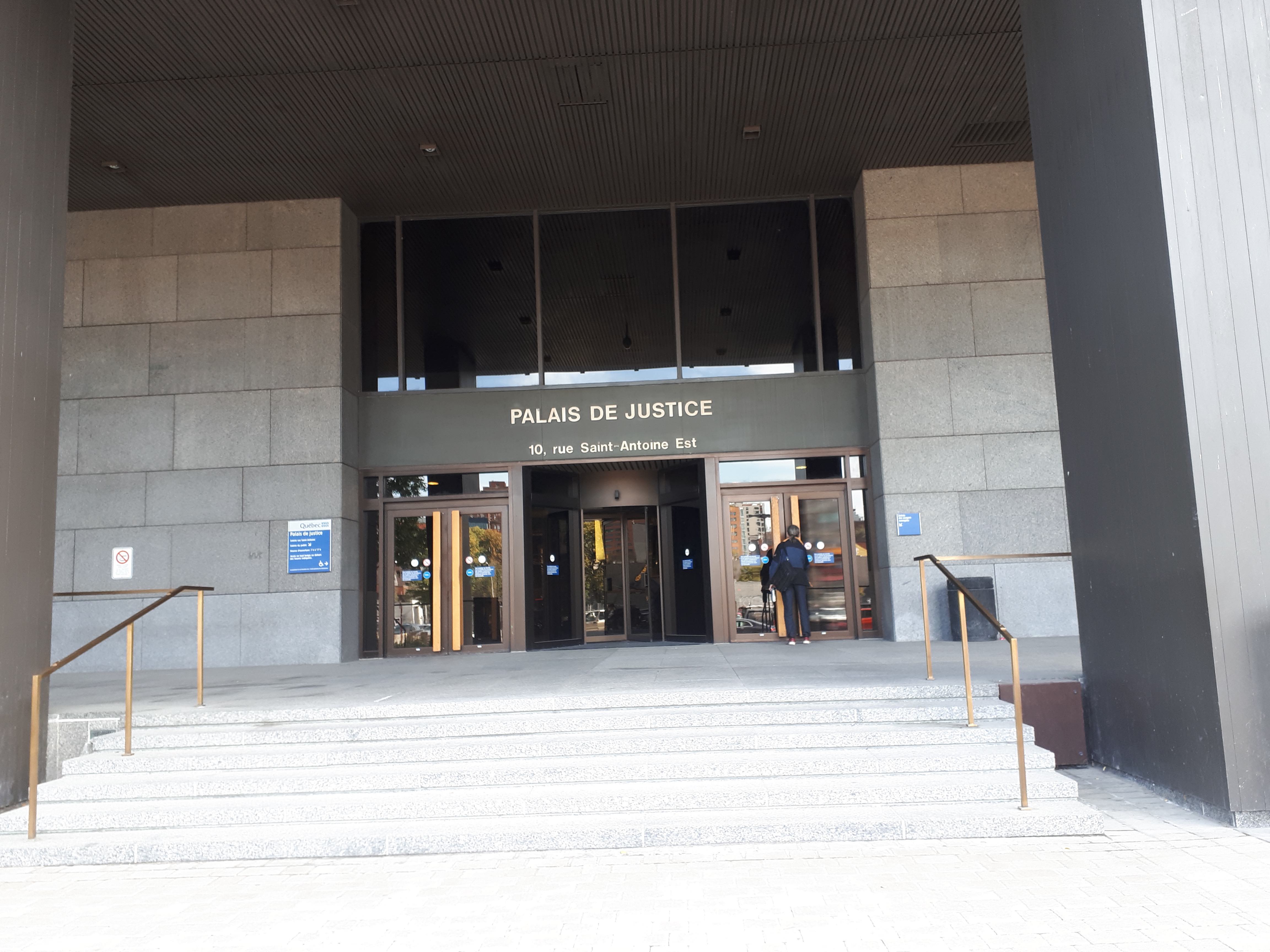Gender advocacy lawsuit challenges Quebec’s awareness of transgender issues
When the cross-examination was over, Hon. Judge Gregory Moore congratulated Louis-Simon Corriveau for keeping his composure on the witness stand. The questioning Corriveau endured was one of the more aggressive during the five weeks of hearings, according to Moore. “You did very well,” the judge said.
Corriveau is an equality consultant in the Secrétariat à la condition féminine, which advises the provincial government on matters of equality between men and women. On Friday, Feb. 15, he was asked questions from Plaintiff Lawyer Audrey Boctor, who represents Concordia’s Centre for Gender Advocacy (CGA) in its lawsuit against the provincial government.
Since the beginning of January, the CGA has been challenging sections of the Civil Code of Québec that it says violate the rights of transgender and gender nonbinary people—in particular, transgender and nonbinary parents, immigrants and youth.
To understand how government decisions promote or diminish equality between men and women, the provincial government uses a method called Gender-Based Analysis (GBA). Canada committed to the practice in 1995 as part of the United Nations’s Beijing Platform for Action, according to the Government of Canada’s website.
However, in 2011, Status of Women Canada (now the Department for Women and Gender Equality) revamped the process to include other factors in its analysis, including age, physical ability, race, and ethinicity. The new system, GBA+, also accounts for transgender and gender nonbinary people. Quebec has not committed to adopting GBA+.
The Secrétariat à la condition féminine is tasked with encouraging government bodies and officials to implement GBA. While ministries may choose to keep track of data on transgender and gender nonbinary people, Corriveau said his agency cannot compel them to do so.
“If we have data about trans and nonbinary people, we include it,” said Corriveau. “Inclusion of different variables depends on accessibility of data.”
The defense asked Corriveau if people identifying as a gender that didn’t match their biological sex affected the reliability of their data. Corriveau responded that the Secrétariat is concerned first and foremost with biological sex in its analyses, and that gender identity is only “a compliment” to that data.
During her cross-examination, Boctor passed around documents from other provincial governments outlining their strategies regarding GBA. Ontario’s plan acknowledges trans and nonbinary people in its data collection, in addition to cis men and women. Alberta’s plan acknowledges that “gender is only one factor” in understanding the barriers that people face in society. Quebec’s plan makes no mention of either transgender or nonbinary people. However, it does recommend that government bodies take into account “age, education, income, cultural community affiliations, disabilities, regions, or health, along with any other relevant variables.”
Boctor criticized Corriveau for his knowledge of these policies. “You’ve been at the Ministry [for the status of women] for a year and a half and you’re not aware of what’s going on in [other provinces]?” she asked.
Corriveau told The Concordian he was not authorized to answer questions about his testimony.
* * *
“A thorn in the foot of a lion.”
After a two-hour break, the court heard testimony from Roger Noël, the coordinator of the Bureau de lutte contre l’homophobie (BLH). It was this testimony that drew Raphaële Frigon to the courthouse on Friday. Frigon works for the trans advocacy group, Fierté trans – Euphorie dans le genre. She is frustrated with the difficulty her organization has in acquiring government grants from BLH, especially compared to more general LGBTQ+ advocacy groups. “We just applied for a grant from the programme de financement, and our grant got denied. And I think that’s interesting, given that we are running a trans project that is solely dedicated to trans issues,” she said.
While the lawsuit will not directly impact the funding these groups receive, Frigon is optimistic that it will inspire positive change. “It’s like a thorn in the foot of a lion, and you can tell it’s having some impact already, and I’m hopeful that something will come out [of it],” she said.
Friday’s testimony concluded the fifth week of the lawsuit’s hearings. Last week, the court heard from Jonathan Boisvert, the interim director of expertise and jurisdictional activities, on the legalities of changing names and gender markers in Quebec. Hearings will conclude on Feb. 27.
Photo by Ian Down.




